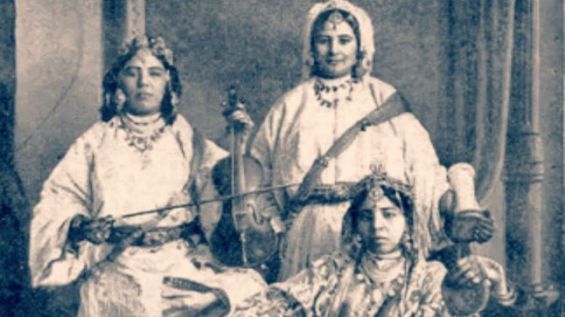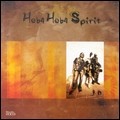She is a figure of the struggle led by Moroccan peasants against local governors and colonial powers, Kharboucha was an influential woman in the Doukkala-Abda region. She used her voice and poems to fight against her enemies. She learned these lyrics by heart to mobilize the population of her native land, the Oulad Zayid tribe.
Kharboucha, who never knew how to read and write, wrote the first chapters of the Aita history, becoming both an iconic figure of this musical style and a political activist in the Kingdom’s rural world.
Many researchers don't exactly define her date of birth, but they suggest that she existed at the end of the 19th century. Hadda is her real name, she was also called Hwida or Kharboucha because of the scars on her face. During the same period, Aissa Ben Omar who was the Caid of a neighboring tribe, ordered the looting of Oulad Zayid after the death of Sultan Moulay Hassan I (1873 – 1894). It was in this context that Kharboucha decided to stand up against Aissa Ben Omar and encouraged her people to fight back.
Singing, a weapon against totalitarianism
In the book «Des femmes écrivent l’Afrique, l’Afrique du Nord» (Karthala, 2013), written by Fatima Sadiqi, Amira Nowaira and Azza El Kholy, and supervised by Moha Ennaji, researchers point out that Aissa Ben Omar was renowned for his relentless cruelty.
Thus, he undermined the revolt of the Oulad Zayid tribe in 1895. Lands and horses were confiscated, arms caches were devoid of their equipment and many men were savagely killed.
After this defeat, Kharboucha fled but she was quickly caught and imprisoned by Aissa Ben Omar's men. «During the festivities he was organizing, he asked her to sing him all the songs she had sung to her people», recall the researchers, noting that it was a way for her to avenge her people.
During her short life, Kharboucha produced songs telling the story of her struggle against Aissa Ben Omar. In one of her songs, the diva told the Caid that she would never yield to his tyranny, that «she would never stop defending her people and her homeland, Abda» and accused him of burning the lands of Ouald Zayid by killing her «brothers».
In other songs, she was talking to her relatives by referring to what she endured in the hands of Aissa Ben Omar. Another song of hers included «the famous verses, which were then adopted by many Moroccan singers and lyricists : «Where are you from. Where am I from?», wrote the same source.
Political Aita
The book directed by Moha Ennaji revisited Kharboucha's life, but he also recalled that the political songs of this Moroccan diva were the founding pillars of the musical genre. According to him, the young woman «invented a form of singing, known today as Aita ; it was a call to action, sung exclusively by women or by men dressed like women (…)».
«These texts described the lives of women in their families», just like «anti-colonial resistance, a fierce sense of independence and a pressing desire for political rights».
In this direction, the researchers indicate that «Aita begin with mystical explosions– invocations of Allah and saints. The cry is transformed into singing, which reflects the suffering and calls for the surpassing of oneself». Moreover, in one of her songs, Kharboucha anticipated her own death in a moving way.
O old man with gray hair! The treachery of my Caid is bad.
Where are you from?
Where am I from?
Aren't we from the same place?
Nothing lasts forever ...
Kharboucha stood in front of the Caid for the last time, singing a song that led to her death. The Caid immured her in an attic that he set on fire. But despite her tragic death, Kharboucha never died as she inspired Aita singers and musicians who perpetuated her legacy.
Indeed, Aita took different forms in several regions, giving birth to a rich oral musical heritage : the Marsaouia in the region of Casablanca, Chaouia and Doukkala, the Hasbaouia in Abda and Safi, the Zaerya in Rabat and Zaer, and the Haouzia in the Errhamna region and in Marrakech.
This story was also fascinating for cinema and television. In fact, Moroccan filmmaker Farida Bourquia was inspired from the life of Kharboucha when making her series Jnane El Karma. Later, film director Hamid Zoughi dedicated a feature film to the tragic life of this diva and to her artistic and political influence.




 chargement...
chargement...











